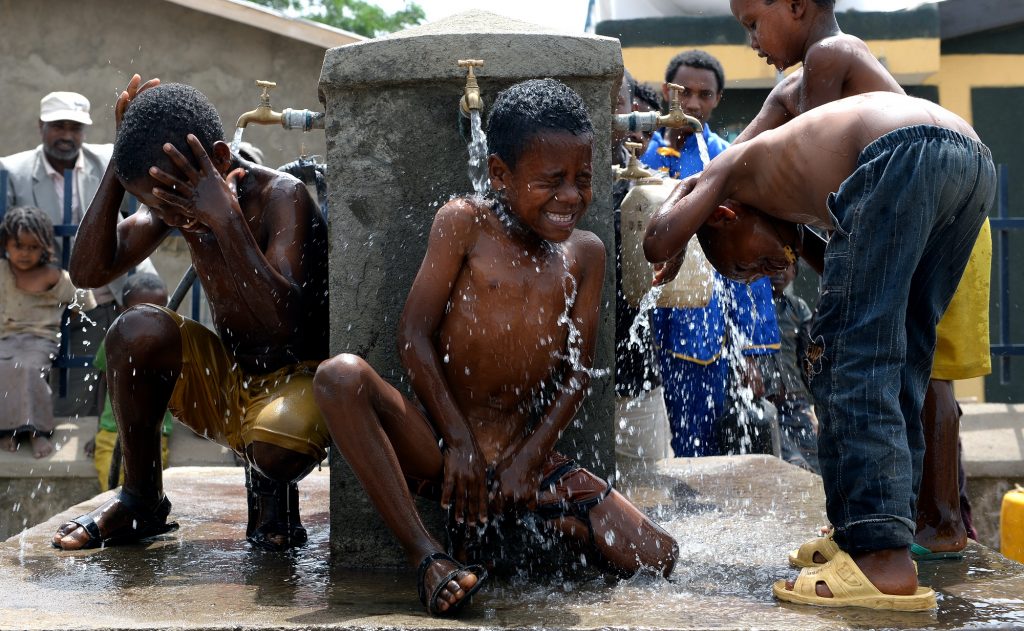Supporting three local villages of Ethiopia since 2011, the POSCO 1% Sharing Foundation is making improvements in environment and household income.
The POSCO 1% Sharing Foundation received thank-you letters and gifts from residents of the villages in Ethiopia. It has been supporting various programs such as water line expansion and agricultural education in three villages, Debeso, Adulala and Handode. Furthermore, POSCO family volunteering groups have traveled to the villages between 2012 and 2014, to lend a helping hand.
Starting with the organization of a new community board and a youth association, the POSCO 1% Sharing Foundation also constructed a village hall and established a residents association, while reigniting a sense of ownership and promoting harmony through “can do” activities.
In addition, the quality of life of the villagers was greatly improved by constructing new roads and introducing solar-powered lantern systems. The quality of the education for children was also significantly improved by building libraries and kindergarten classrooms. Particularly, the POSCO 1% Sharing Foundation contributed to solving the the most urgent issue of access to clean drinking water by constructing rainwater tanks and a reservoir for the supply of water for agricultural use. The water tanks will provide drinking water for villagers and for livestock.
After all these projects, villages can see positive changes. Most of all, the energy has been revitalized and the average income increased. Children can now work and study at the same time. Villagers expressed their gratitude by delivering thank-you letters and handmade crafts to the members of the POSCO 1% Sharing Foundation. “I will never forget the POSCO employees who helped us enjoy the benefits of these various projects,” said the letter from Zanaba Akabiya in Adulala.
Meanwhile, the POSCO 1% Sharing Foundation will continue to support their sustainable businesses until the end of the year, even after the foundation closes. A representative of the POSCO 1% Sharing Foundation said, “A bank for livestock, a village hall and the water tanks will be operated and managed by villagers while businesses with less profit and low sustainability will close.”

